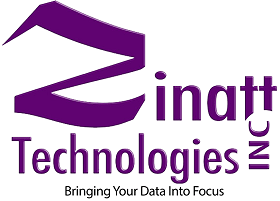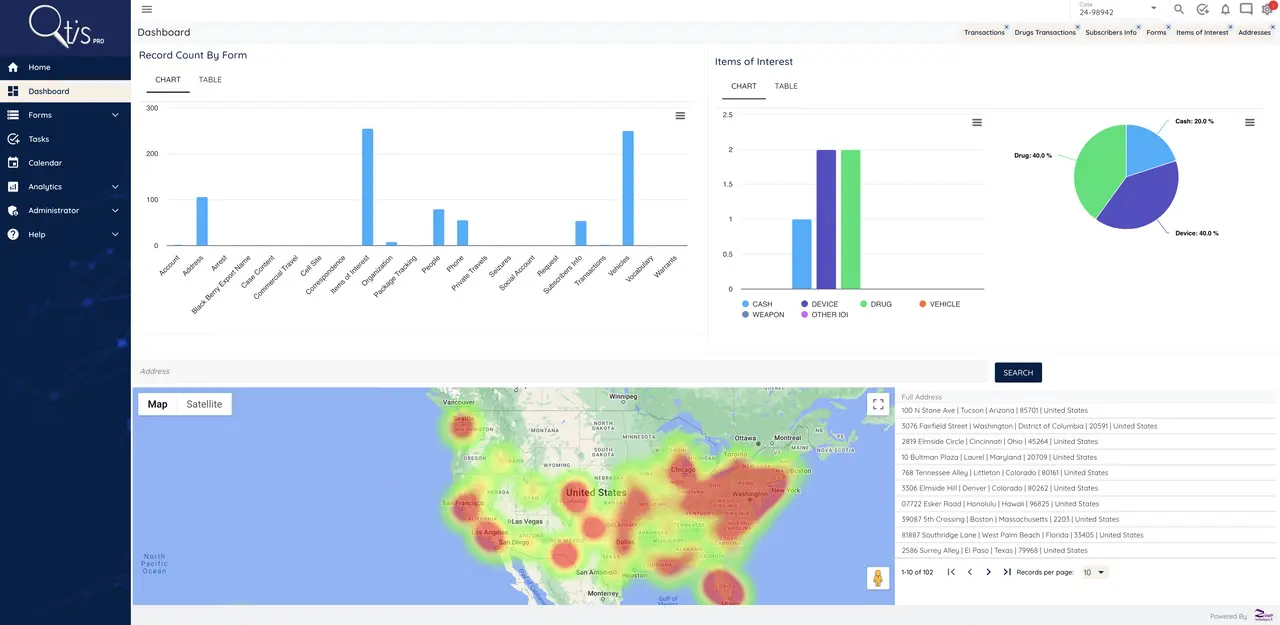Introduction to Investigative Dashboards
Investigative dashboards are powerful tools that assist law enforcement agencies in organizing and analyzing large amounts of data efficiently. These dashboards provide a visual representation of complex information, making it easier for investigators to identify patterns, trends, and connections across various sources of data. By streamlining workflows, investigative dashboards help law enforcement personnel save time and make informed decisions more quickly.
The image below is an investigative dashboard that Qtis (Quick Tracking Information System) powered by Zinatt Technologies Inc offers – go to www.zinatt.com
Benefits of Using Investigative Dashboards for Law Enforcement
Investigative dashboards streamline workflows for law enforcement in various ways. They provide a consolidated view of crucial data, enabling quick analysis and decision-making. These dashboards help officers to identify patterns, trends, and connections more efficiently, aiding in solving cases faster. With real-time updates and interactive features, investigative dashboards enhance collaboration among team members and improve overall operational efficiency. Moreover, they offer customizable features that can be tailored to suit specific investigative needs, making them a valuable tool for law enforcement agencies.
Streamlining Workflows with Investigative Dashboards
Investigative dashboards have become essential tools for law enforcement agencies, aiding in streamlining workflows effectively. By consolidating key information and data in one centralized platform, investigative dashboards enable officers to efficiently analyze and interpret complex data sets. Through real-time updates and interactive visualizations, these dashboards empower law enforcement to make informed decisions swiftly. With features like integrated mapping and data filtering, investigative dashboards enhance operational efficiency and facilitate collaboration among team members.
Key Features of Investigative Dashboards
Investigative dashboards offer a range of features to help law enforcement work more efficiently. These features include real-time data visualization, advanced search capabilities, customizable reporting options, integration with various data sources, and collaboration tools. All these elements help streamline workflows, enhance analysis, and improve communication among law enforcement teams.
Improving Efficiency in Law Enforcement Operations through Investigative Dashboards
Investigative dashboards are digital tools that help law enforcement agencies streamline their operations and work more efficiently. These dashboards collect and analyze data from various sources to provide officers with valuable insights and information in real-time. By using investigative dashboards, law enforcement personnel can quickly access critical data, track progress on cases, identify trends, and allocate resources more effectively. This technology enhances communication among team members and improves decision-making processes, ultimately leading to a more efficient and cohesive approach to tackling crime.
Case Studies: Real-world Applications of Investigative Dashboards
Case studies offer real-world examples of how investigative dashboards streamline workflows for law enforcement. These studies provide practical insights into how law enforcement agencies use these tools to enhance their investigative processes. By showcasing specific scenarios and outcomes, case studies demonstrate the tangible benefits of incorporating investigative dashboards in day-to-day operations.
Implementing an Investigative Dashboard System
Law enforcement agencies benefit from using investigative dashboard systems to help streamline their workflows. These systems allow officers to access and analyze data quickly and efficiently. Here’s how implementing an investigative dashboard can improve law enforcement operations:
-
Centralize Data: An investigative dashboard system brings all relevant information into one centralized platform, making it easier for officers to access and review critical data in one place.
-
Visualize Information: Visualizing data through graphs, charts, and maps can help officers identify patterns, trends, and connections that may not be apparent in raw data.
-
Enhance Collaboration: Collaborative features in investigative dashboards enable officers to share information, work together on cases, and communicate more effectively with team members.
-
Increase Efficiency: By automating repetitive tasks and providing real-time updates, investigative dashboards can help officers work more efficiently and respond to incidents faster.
-
Improve Decision-Making: With access to comprehensive and up-to-date information, law enforcement officials can make better-informed decisions and take proactive measures to enhance public safety.
Training and Support for Law Enforcement Personnel
Law enforcement agencies provide training and support to their personnel to ensure they are equipped with the necessary skills and knowledge. This training helps officers understand how to effectively use investigative dashboards in their daily workflows. Support is also available to address any questions or issues that may arise during the implementation process. By investing in proper training and support, law enforcement personnel can maximize the benefits of using investigative dashboards to streamline their work efficiently.
Data Management and Security Considerations
Law enforcement agencies need to prioritize data management and security when implementing investigative dashboards. To ensure sensitive information is protected, it’s crucial to establish secure access controls and encryption protocols. Regular data backups and updates are essential to prevent security breaches. Training staff on data security best practices is also key to maintaining the integrity of the investigative dashboard system.
Conclusion: Maximizing Operational Effectiveness with Investigative Dashboards
To wrap it up, implementing investigative dashboards in law enforcement workflows is a key strategy to enhance operational effectiveness. These dashboards streamline data analysis, facilitate collaboration among team members, aid in identifying patterns and trends efficiently, provide real-time updates on cases, and ultimately lead to quicker and more informed decision-making processes. By leveraging the power of investigative dashboards, law enforcement agencies can optimize their workflows, improve overall performance, and better protect their communities.




 520 838 0346
520 838 0346 sales@zinatt.com
sales@zinatt.com











